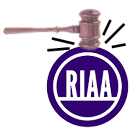RIAA’s ‘Making Available Argument’ Shot Down Again
 In the court case of Atlantic v. Howell, the judge denied a request of summary judgment against the Howells. The court decision was surprisingly incisive, rejecting the RIAA’s argument that merely leaving copies of copyrighted works in a place where someone might copy them, without any evidence that they did, is a violation.
In the court case of Atlantic v. Howell, the judge denied a request of summary judgment against the Howells. The court decision was surprisingly incisive, rejecting the RIAA’s argument that merely leaving copies of copyrighted works in a place where someone might copy them, without any evidence that they did, is a violation.
This so-called “making available argument” has been shot down twice recently in courts, after February’s Atlantic v. Brennan ruling. If sustained, the RIAA’s cases will require proof that files made available are actually distributed.
In a recent reversal of a previous court decision, Judge Neil Wake has ruled that:
“Section 106(3) of the Copyright Act of 1976 grants to ‘the owner of copyright … the exclusive rights to … distribute copies or phonorecords of the copyrighted work to the public by sale or other transfer of ownership, or by rental, lease, or lending.
The statute does not define the term ‘distribute,’ so courts have interpreted the term in light of the statute’s plain meaning and legislative history. The general rule, supported by the great weight of authority, is that ‘infringement of [the distribution right] requires an actual dissemination of either copies or phonorecords.”

 The future of digital experiences will be built by strategists who grasp the full array of emerging business, social, and technical models. Specialties in user experience, branding, application design, and data science are laying the foundation for richer user experiences and business models breakthrough products and revenue based marketing.
The future of digital experiences will be built by strategists who grasp the full array of emerging business, social, and technical models. Specialties in user experience, branding, application design, and data science are laying the foundation for richer user experiences and business models breakthrough products and revenue based marketing.